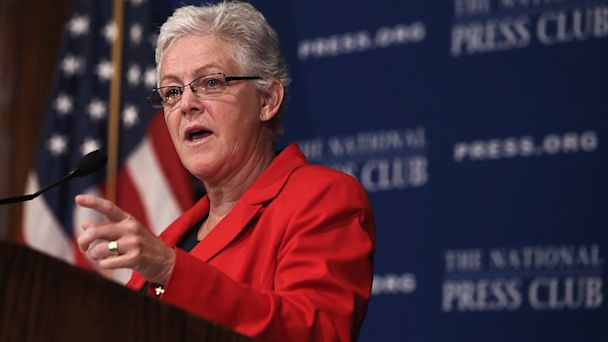EPA Proposes First-Ever Power Plant Carbon Pollution Limits

(Credit: Alex Wong/Getty Images)
The Obama administration today formally proposed the first-ever national carbon pollution limits for new power plants, seeking to sharply cut greenhouse gas emissions, despite the strong opposition from the energy industry and many Republicans.
The EPA standard, which would apply only to newly constructed plants, would require coal-burning facilities to capture about 40 percent of their carbon dioxide emissions using the new and costly Carbon Capture and Sequestration technology. It would also set caps for natural gas fueled plants.
The move is the first significant step by President Obama to make good on the pledge from his second inaugural address to more aggressively confront climate change. The administration says rising greenhouse gas emissions have led to warming global temperatures, harmed public health, and fueled more intense and extreme weather.
Obama ordered the new regulations in a June 25 memo, exerting his executive authority with majorities in Congress opposed to the rules.
The proposed rule for new power plants is still subject to a 60 day comment period before taking effect. The EPA said today it is drafting guidelines for existing power plants, the single largest source of emissions in the U.S., and will release a proposal next summer.
Barack Obama's Evolution on Climate Change: A Brief History
Environmental advocates have praised the new regulations as a positive step but say that without addressing existing plants they don't go far enough. Meanwhile, the power industry and many Republicans have criticized the new EPA rules as costly burdens that will kill jobs and increase costs to consumers. Some critics say the new technology is too expensive and unproven.
"The announcement by the EPA is another back door attempt by President Obama to fulfill his long-term commitment to shut down our nation's coal mines," said Senate Minority Leader Mitch McConnell.
Earlier this month, industry representatives warned Bloomberg News that the regulations would effectively ban the construction of any new coal power plants.
The dispute over regulating carbon has been fought in every corner of federal politics and government. On the campaign trail, Mitt Romney and Obama battled over regulating coal, as Romney blanketed coal-producing counties with TV ads accusing Obama of waging a "war on coal." The same fight is being played out now in the Virginia gubernatorial race.
In Congress, carbon regulation enjoyed bipartisan support in the early 2000s, when Sens. John McCain and Joe Lieberman unveiled an early cap-and-trade bill. In 2009, the House passed a cap-and-trade bill at the urging of Obama and then-Speaker Nancy Pelosi, and Republicans exploited that vote to punish Democrats and re-take the House in the 2010 midterms.
In the courts, states sued the executive branch to prevent carbon dioxide regulation under the Clean Air Act. In 2007, the Supreme Court ruled in Massachusetts v. EPA that the EPA does have the authority to regulate greenhouse gases.